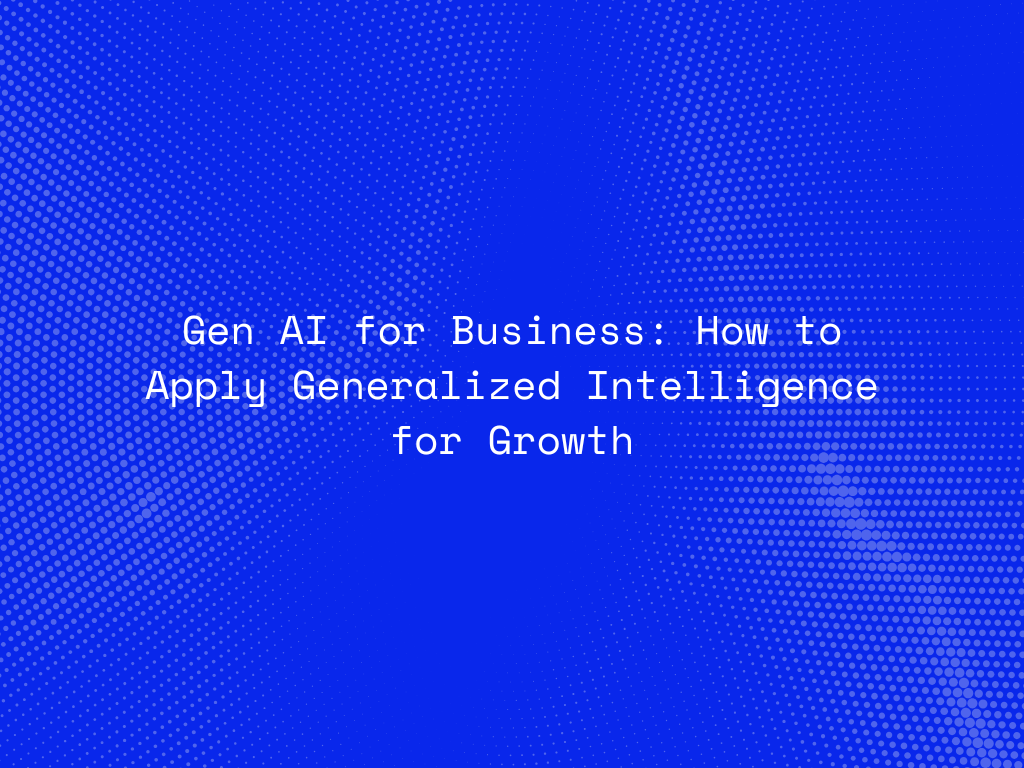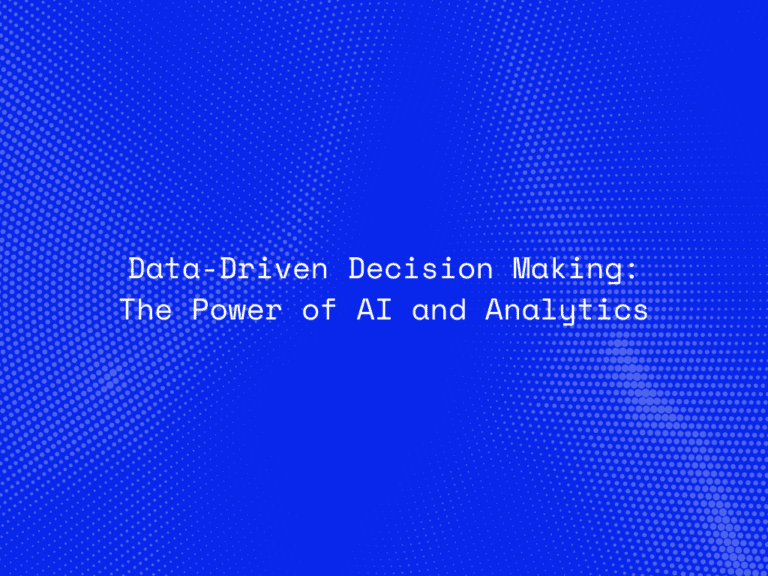As Generative AI technologies advance, they are unlocking new opportunities for businesses to drive growth and innovate. From improving customer engagement to streamlining operations, Generalized Intelligence is transforming how companies operate and compete. This article explores the ways businesses can harness Gen AI to fuel growth, optimize processes, and deliver enhanced customer experiences.
Key Applications of Generative AI in Business
- Customer Service Automation: Generative AI models can power intelligent chatbots and virtual assistants, providing personalized support to customers around the clock, enhancing satisfaction, and reducing operational costs.
- Content Creation: Businesses can use Generative AI to produce high-quality marketing content, from social media posts to product descriptions, freeing up time for teams to focus on strategic initiatives.
- Data-Driven Decision Making: AI models analyze vast datasets to generate actionable insights, enabling companies to make better decisions regarding market trends, consumer behavior, and business strategies.
- Product Design and Development: Generative AI is also being used to accelerate innovation in product design by automating complex processes, allowing companies to bring products to market faster.
Benefits of Applying Generative AI in Business
- Increased Efficiency: By automating repetitive and time-consuming tasks, Generative AI enables teams to focus on high-impact activities, leading to more efficient operations.
- Cost Savings: Implementing AI solutions can help reduce labor costs, streamline processes, and optimize resource allocation, resulting in significant financial savings.
- Scalability: AI-powered solutions can handle high volumes of work, making them ideal for scaling operations without requiring proportional increases in manpower.
- Enhanced Customer Experience: Generative AI enables hyper-personalization, tailoring products, recommendations, and support to meet individual customer preferences, driving loyalty and retention.
Challenges in Adopting Gen AI for Business
- Data Security and Privacy: As AI relies on data to function effectively, companies must ensure robust data protection practices to maintain customer trust and comply with regulations.
- Bias and Fairness: Generative AI models can unintentionally reflect biases present in their training data, potentially leading to unfair treatment or inaccurate outputs.
- Resource Constraints: Developing and deploying Generative AI systems requires significant investment in infrastructure and expertise, which may be challenging for smaller organizations.
- Employee Training: The successful implementation of AI in business often necessitates upskilling employees, ensuring they are equipped to leverage and manage AI technologies.
How to Implement Generative AI for Business Growth
- Define Objectives: Start by identifying the specific business problems AI can solve, aligning AI applications with strategic goals such as improving customer service, reducing costs, or enhancing product quality.
- Invest in High-Quality Data: Since Generative AI relies on data, businesses should focus on collecting, cleaning, and curating high-quality data to maximize AI performance and accuracy.
- Pilot Projects: Begin with pilot projects to test the effectiveness of Generative AI solutions in a controlled environment before full-scale deployment.
- Foster a Culture of Innovation: Encourage a company culture that embraces AI and digital transformation, ensuring employees understand the benefits of AI and are willing to adapt to new tools.
Future Trends in Generative AI for Business
- AI-Driven Innovation: Generative AI will continue to drive innovation in areas like product design and service delivery, creating new market opportunities.
- Hybrid AI Models: Combining Generative AI with traditional data analytics will allow businesses to create more powerful solutions that leverage the strengths of both approaches.
- Ethical AI Practices: As AI usage expands, companies will prioritize ethical AI practices to ensure transparency, fairness, and accountability in AI-driven decision-making.
- Real-Time Personalization: AI will enable real-time personalization on a broader scale, allowing businesses to provide timely, relevant experiences to each customer.
Conclusion:
Generative AI offers significant opportunities for business growth by improving efficiency, enhancing customer experiences, and driving innovation. However, realizing these benefits requires careful planning, a commitment to data ethics, and a strategic approach to implementation. As companies continue to adopt Generative AI, those that can effectively harness its potential will be better positioned to compete and thrive in an increasingly AI-driven world.




